Plenary Speakers
- Home
- Plenary Speakers

Speech is scheduled on 04th May 2024 at 09.30 am
 |
Prof. (Dr.) Tanuja Manoj Nesari M.D., Ph. D (Ayu.) Director All India Institute of Ayurveda (AIIA) Gautampuri, Sarita Vihar, New Delhi-110076 (India) Email: director@aiia.gov.in |
*****

Speech is scheduled on 04th May 2024 at 09.30 am
 |
Prof. Iraj RatnayakeProf in the Department of Tourism Management, Sabaragamuva University Equity and Inclusion: Reforming the Future of Wellness |
Iraj Ratnayake is a Professor in Tourism with more than two and half decades of successful academic career. He served as the Head of the Department of Tourism Management and the founder Dean of the Faculty of Graduate Studies, at Sabaragamuwa University of Sri Lanka. His literary presentations mainly encompass tourism planning and development. Besides engaging in research and writing, he participates actively in training and consultation projects including, recreational planning, Ayurveda health tourism, wellness facility development and management. He is a member of the Board of Ayurveda Education and Hospitals and the Chairperson of the Ayurveda Examination Board of the Department of Ayurveda, Sri Lanka. Iraj has a lifelong passion for the development and promotion of wellness education in Sri Lanka.
I am delighted to deliver this invited speech at the 2nd International Research Symposium jointly hosted by the Faculty of Graduate Studies, University of Kelaniya and the Department of Ayurveda, Sri Lanka. Today, I invite you to explore the essence of wellness in our contemporary societies and its role in the future context in particular. Wellness is an essential aspect of human life that has historically evolved through ancient civilisations up until now. The pieces of historical evidence from many parts of the world validate its integration with our lives over the centuries. For instance, wellness in ancient Greece and Rome, Indian Ayurveda, Arab and Persian medicine of the Islamic world, Japanese Onsen tradition, American Indian healing, Thai herbals and massages, traditional Chinese medicine, Indonesian Jamu, wellness traditions before and after the Renaissance in the European continent and even in small island nations like Sri Lanka where its wellness practices perhaps move back to well over 3rd century BC. These are truly endowments of global culture, wisdom, and heritage that play a significant role in shaping our wellness. Today, our achievements on many fronts in human development such as life expectancy at birth, for example, have shown a considerable improvement over the years. However, according to the World Health Organisation (2024), 17 million non-communicable disease (NCD) deaths occur before the age of 70 years. Of these premature deaths, 86 per cent are estimated to occur in low- and middle-income countries. Children, adults and the elderly are all vulnerable to many risk factors contributing to NCDs, which fall broadly within behavioural, metabolic, and environmental categories. As a result, healthcare costs have been rising since the 20th century creating an extra burden on national economies. The wellness sector can play an indispensable role in reversing this phenomenon. However, its reach for the wider cross-section of society is still questionable. Equity and inclusion in wellness are uncompromisable and there is a pressing need to go beyond the personal level reaching out to groups, organisations, and communities, by and large. The interdependent nature of wellness allows us to become more aware, connected and engaged with others and the environment. This leads to developing and fostering symbiotic relationships for the wellness of people and the planet. To make this happen our future wellness solutions must be cost-effective and at the same time, we need to make sure that people are truly benefiting directly from their health-conscious consumption. Establishing and maintaining the balance and harmony between the main domains of life (body, mind, and spirit) will no longer be possible by any superficial means alone. Hence, the wellness sector needs to adapt and evolve to deliver personalised solutions tailored to the specific needs, preferences, genetic makeup and body constitution of consumers while assuring equity and inclusion. This demands a variety of professional services and products that promote physical, emotional, spiritual, social, occupational, and environmental wellness. Given this background, the wellness sector is likely to be characterised by innovation, personalisation, and digitalisation with a greater emphasis on holistic well-being. It is suggested that the future of wellness essentially be integrative, i.e. combining the wisdom of traditional medicine with modern science and technology.
*****
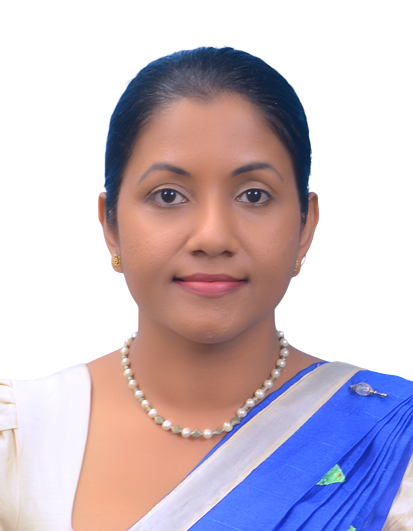
Speech is scheduled on 04th May 2024 at 10.20 am
 |
Dr. Dinum Perera Faculty of Technology, Rajarata University, Sri Lanka. |
*****

Speech is scheduled on 04th May 2024 at 10.20 am
 |
Dr. Geetha KrishnanUnit Head,Evidence and Learning, WHO Global Treatment Center, Jamnagar. |
*****

Speech is scheduled on 04th May 2024 at 1.00 pm
 |
Dr. Manoj NesariPhD in Policy Research. MD, internal medicine (Kayachikitsa), Advisor, Ayurveda, Ministry of AYUSH, Govt. of India, |
Dr. Nesari is senior Advisor to Govt. of India, Ministry of Ayush. He entered in to Central Govt. service in 1993 by qualifying the Union Public Service Commission (UPSC) 1991 batch as the topper. Dr. Nesari is also Director of Indian Medicinal Pharmaceutical Corporation Ltd, the Govt. of India undertaking Pharma Company under Ministry of Ayush.
Dr. Manoj Nesari is the architect of Modern Ayurveda. He is instrumental in bringing out reforms in Ayurveda sector and galvanizing the Ayurveda sector through creating new job opportunities, developing entrepreneurship programs, integrating Ayurveda across the health services in all dimensions including NCDs, infectious diseases, trauma care, antenatal care, medical tourism, skill development etc. He is pioneer in bringing out regulatory reforms for promoting the concept of Integrative medicine. His efforts have also led to integration of Ayurveda in education of Veterinary Science.
Dr. Nesari have a long stint of handling international cooperation of Ministry of Ayush. His efforts has led to formation of Bimstec Taskforce for Traditional Medicine (BTFTM), SCO Technical Working Group on Traditional Medicine, India EU Technical Working Group on Ayurveda etc. As a result of his initiatives and skills in diplomacy, today Ayurveda is legally recognized in 24 countries across the world.
Dr. Manoj Nesari also initiated Celebrating Ayurveda Day every year across the world. The Govt. of India supported the move and in the year 2024, the Ayurveda Day was celebrated in 105 countries across the world.
Dr. Nesari is member to many national and international bodies.
Considering his immense contribution to the field of Ayurveda in terms of Policy reforms, International promotion, Education, capacity building, integration of Ayurveda in public health delivery, developing enabling legal provision, developing various national programs and many such other initiatives for National as well as Global promotion of Ayurveda, The All India Ayurveda Congress felicitated him with the title “Ayurveda Maharshi” in the presence of Hon’ble President of India in May, 2022.
He was also felicitated with following notable awards-
iii. Maharshi Annasaheb Patwardhan Award 2016 -
Dr. Nesari is Doctorate (PhD) on policy research on “international laws related to Traditional systems of medicine” and is Post Graduate (M.D.) in Ayurveda Internal medicine (Kayachikitsa)from Institute of Post Graduate Teaching and Research in Ayurveda (IPGT&RA) Jamnagar with specialization. He completed his University degree in Ayurveda (BAMS) from R A Podar Medical College (Ayur), Worli, Mumbai which is a bachelors course in integrative medicine.
He has also successfully completed the ‘Post Graduate Diploma in Disaster Preparedness and Rehabilitation’ from Guru Govindsingh Indraprastha University, Delhi.
Dr. Nesari has played pivotal role in framing many policies of Ntional Importance e.g. National Health Policy, 2017, Ayushman Bharat Yojana, Integrative Medicine Policy of India, and various initiatives in integrating Ayurveda and Ayush systems in public health, research and education.
At the Internation Level, he has represented India to many multilateral international forums like BRICS, IBSA, SCO, ASEAN, BIMSTEC and to bilateral talks with various countries in Asia, Africa, South America, Eurasia, Europe etc.
Some Important Publications –
Software Development – Concept to designing and led from front in developing ‘AYUSOFT’, the first Ayurveda based disease diagnosis support system software in Ayurveda developed by CDAC.
*****
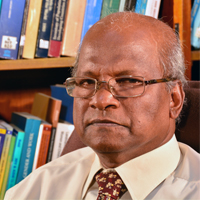
Speech is scheduled on 04th May 2024 at 1.00 pm
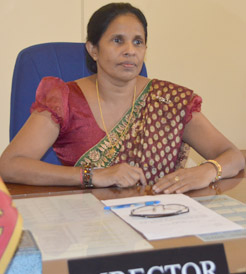
Speech is scheduled on 05th May 2024 at 09.30 am
 |
Senior lecturer Dr (Ms) M.W.S.J KumariFaculty of Indigenous Medicine, University of Colombo |
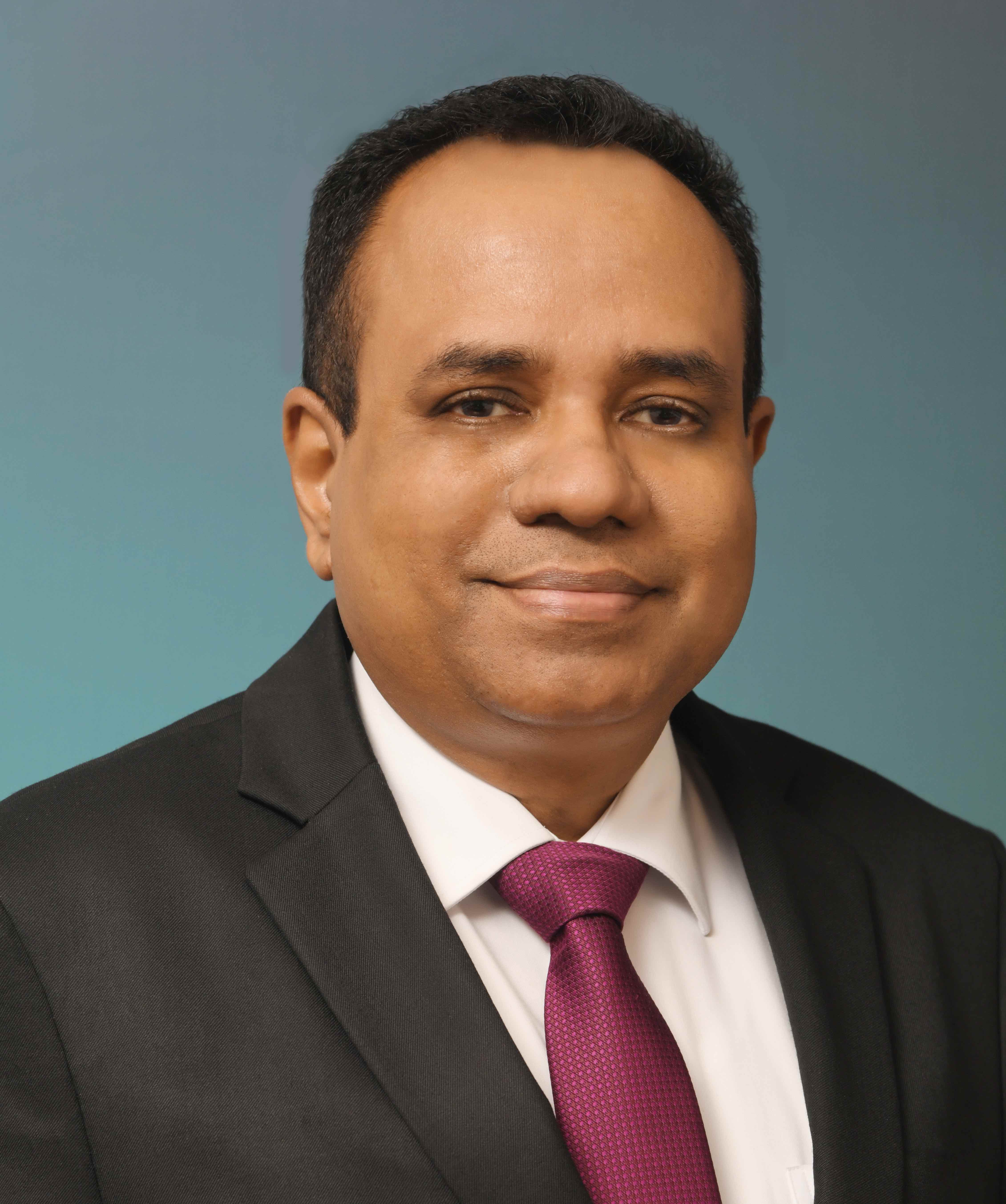
Speech is scheduled on 05th May 2024 at 9.30 am
 |
Vidya Jyothi Prof.Vajira Dissanayake Prof of Medicine, Dean, Faculty of Medicine, University of Colombo. |
Vidya Jyothi Professor Vajira H. W. Dissanayake MBBS (Colombo), PhD (Nottingham), FNASSL, FIAHSI, FCMA, FRCP (Lond) is the Dean of the Faculty and Senior Professor (Chair) of the Department of Anatomy, Genetics, and Biomedical Informatics of the Faculty of Medicine, University of Colombo, Sri Lanka. He has spearheaded various initiatives in the fields of genetics, genomics, biomedical informatics and bioethics in Sri Lanka and globally. He and his team has authored more than 175 paper that have been published in international peer reviewed journals and received more than 40 local and international awards for their work. He has an h-index of 24; i-10 index of 76; and a citation count of 2699. In recognition of his scientific achievements he was elected a fellow of the National Academy of Sciences of Sri Lanka in 2013 – the youngest fellow of the Academy at that time, a fellow of the International Academy of Health Sciences Informatics in 2020 – the first Sri Lankan fellow of the Academy, a Fellow of the Commonwealth Medical Association in 2023, a Fellow of the Royal College of Physicians in 2024 and conferred the Sri Lankan national titular honour of Vidya Jyothi in 2019.
He has held various leadership positions in Sri Lanka and internationally including the following: President, Sri Lanka Medical Association (2012); President, Health Informatics Society of Sri Lanka (2009-2019); President, Commonwealth Medical Association (2016- 2019); President, Asia Pacific Association for Medical Informatics (2019-2020); Board Member, Steering Committee, Forum for Ethical Review Committees in Asia and the Western Pacific (since 2010); Chairperson, Commonwealth Centre for Digital Health (since 2018); Chairperson, Commonwealth Health Professions and Partners Alliance (2021-2022); Chairperson of the Board, Global Genomic Medicine Collaborative (since 2022). He is the current President of the Sri Lanka Medical Council.
Introduction:
Healthcare systems around the world are constantly evolving, seeking ways to improve patient outcomes and provide more holistic care. One avenue that has gained attention in recent years is the integration of traditional knowledge into modern healthcare practices. Traditional knowledge, passed down through generations, encompasses a wealth of wisdom and practices that have been used for centuries to promote health and well-being. By incorporating traditional knowledge into mainstream healthcare, we have the opportunity to enhance the effectiveness and inclusivity of healthcare services.
Benefits of Integrating Traditional Knowledge:
Challenges and Considerations
Conclusion:
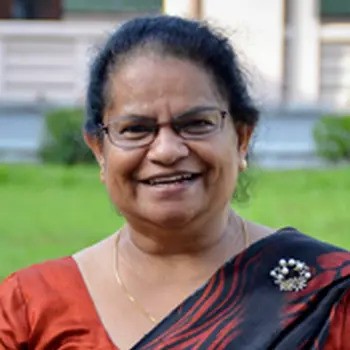
Speech is scheduled on 05th May 2024 at 10.20 am
 |
Prof. Ayanthi NavarthneSenior Professor,Department of Chemistry, University of Peradeniya |
Toxic effects of pesticides and fertilizer on human, animal and ecosystem as a whole
Acute toxicity of a substance refers to immediate effects or even death from a single dose or repeated exposure over a short time. Acute toxicity is measured by LD50 and LC50 values. The smaller the LD50, the more toxic the substance is. Toxicity depends on the chemical and physical properties of a substance. Chronic toxicity or environmental toxicity refers to the effects of long-term, lower level exposures to a toxic substance. The effects of chronic exposure do not appear immediately after first exposure and may take years to produce symptoms. Toxic substances which have a tendency to accumulate, or which break down slowly in body tissues, usually represent the greatest chronic exposure hazard.
Pesticide is substance applied to kill or mitigate the actions of pest. With modern agriculture. ,pesticides have, become an essential item although it is intentionally applied to kill pests by knowing their toxic effects to human, animal and the ecosystem. Pesticides have many different modes of action, but in general cause biochemical changes which interfere with normal cell functions. With realization of this aspect, there is a world trend of moving away from pesticides at least for a certain extent.
Heavy metal pollution in water resources as well as in soil has drawn attention in the recent past due to toxic effects which pose on human and animal due to the nonbiodegradable nature and biomagnification. Arsenic, cadmium, chromium, lead, and mercury rank among the priority metals due to public health concerns. Heavy metals damage the functions of the brain, lungs, kidney, liver, blood composition and other important organs.
In this lecture, Research carried out on pesticides, specially glyphosate issue in Sri Lanka and analysis of heavy metal impurities in imported fertilizes specially triple super phosphate, and alternatives to mitigate the adverse health effect of these chemicals to human, animal and ecosystem will be discussed.
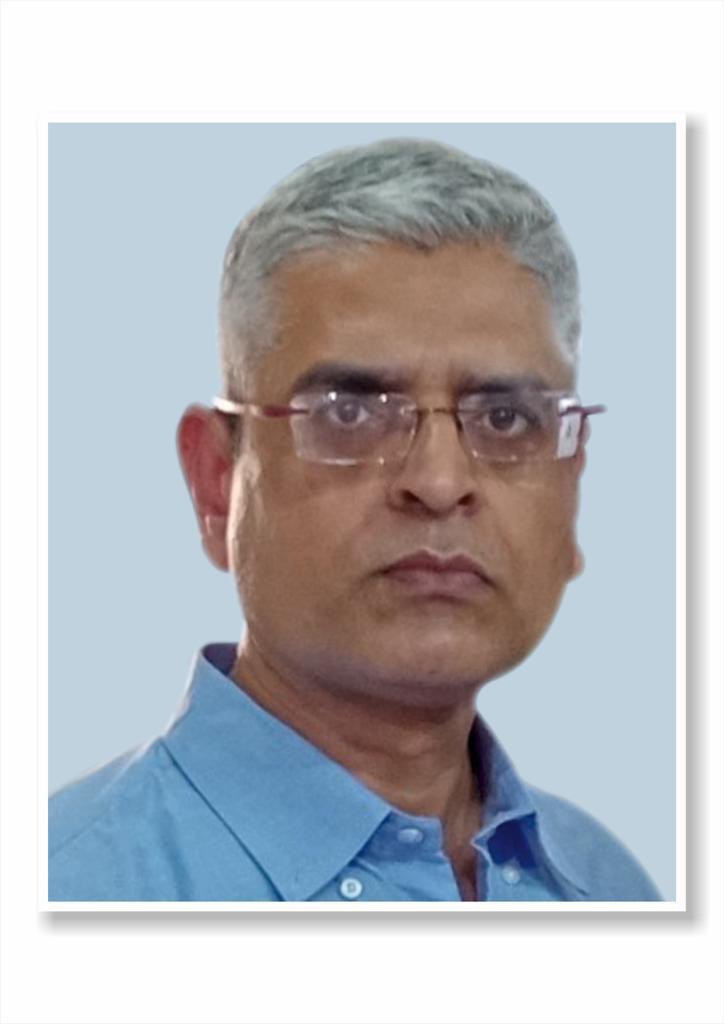
Speech is scheduled on 05th May 2024 at 10.20 am
 |
Dr Mukesh Chawda Shree Dhootapapeshwar Ltd, 135, Nanubhai Desai Road, Khetwadi, Mumbai – 400004, INDIA |
Dr Mukesh B Chawda (B.A.M.S. (Mumbai)) is currently serving as the Senior Manager in Medical Services representative of Solumiks Herbaceuticals Limited and A Shree Dhootapapeshwar Limited Enterprise, Mumbai. With the vision of transforming Traditions into Science, he has been actively engaged in research and development for more than 25 years. He has been engaged in planning and executing of product studies including clinical, experimental and toxicity studies, new product conceptualization, registration and launch, preparation of communication for Vaidyas and Doctors based on the study data and conducting CME program for Doctors. He has produced more than 30 publications in many reputed peer reviewed journals such as Journal of Cardiovascular Disease Research, Journal of Diabetes and Metabolic Disorders, and Journal of Evidence-Based Integrative Medicine. He showed his expertise in playing key roles in initiation, execution and completion of collaborative research projects and publication with major institutes such as Indian Institute of Technology, Department of Chemical Engineering, Powai, Mumbai, National Institute of Ayurved, Jaipur, National Centre for Preclinical Reproductive and Genetic Toxicology, National Centre for Preclinical Reproductive and Genetic Toxicology, and National Institute for Research in Reproductive and Child Health.
Ageing is associated with an increased risk of diseases related to musculoskeletal disorders which include conditions that affect joints (osteoarthritis), bones (osteoporosis), muscles and the spine. Globally, hip and knee osteoarthritis is ranked 11th as a contributing condition to disability and its prevalence is increasing in most countries.1 It is estimated that approximately 250 million people worldwide suffer from osteoarthritis (OA).2 An increasing trend in the prevalence of OA is observed during the last decades. Around 85% of OA burden worldwide is related to Knee OA, with an estimated prevalence of 10% in men and 13% in women aged 60 and above.2 Knee OA is characterized by the progressive loss of articular cartilage and remodeling of the underlying bone. Factors such as excess weight, joint trauma and weakness of the quadriceps muscle are identified as some of the risk factors for developing Knee OA. The initiation, progression, and severity of knee osteoarthritis (OA) have been linked with decreased muscle strength and alterations in joint biomechanics.3 OA treatment is challenging. In absence of any effective therapeutic option to stop OA from developing or progressing, the gold-standard end stage therapy is total joint replacement surgery. Pain management and lifestyle changes are the only available therapeutic option for low-grade OA. Traditional medicines can contribute to safe and effective management of Knee OA by addressing the cause and its effect.